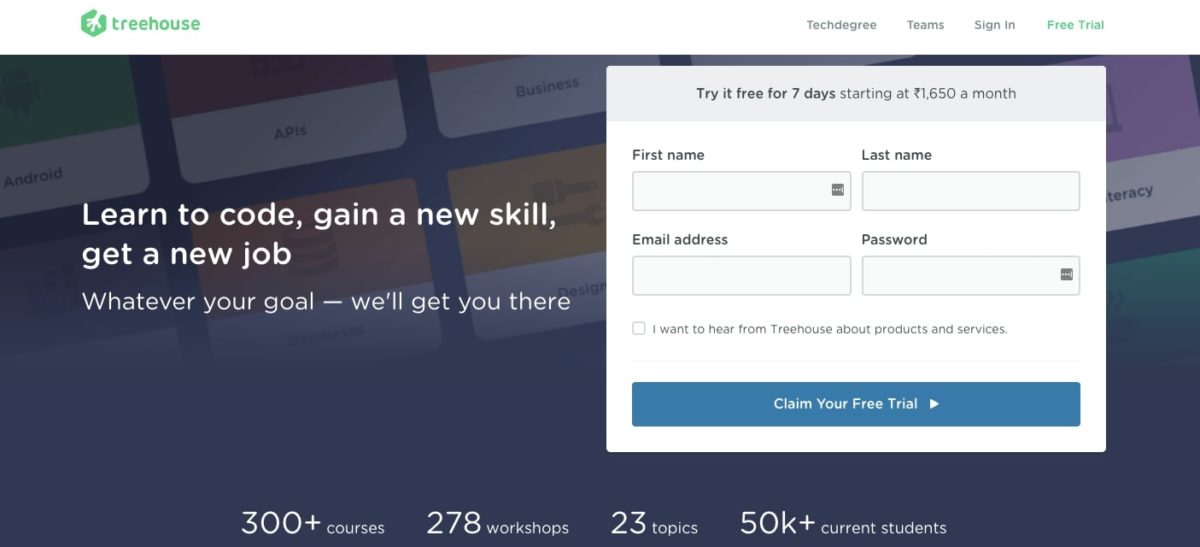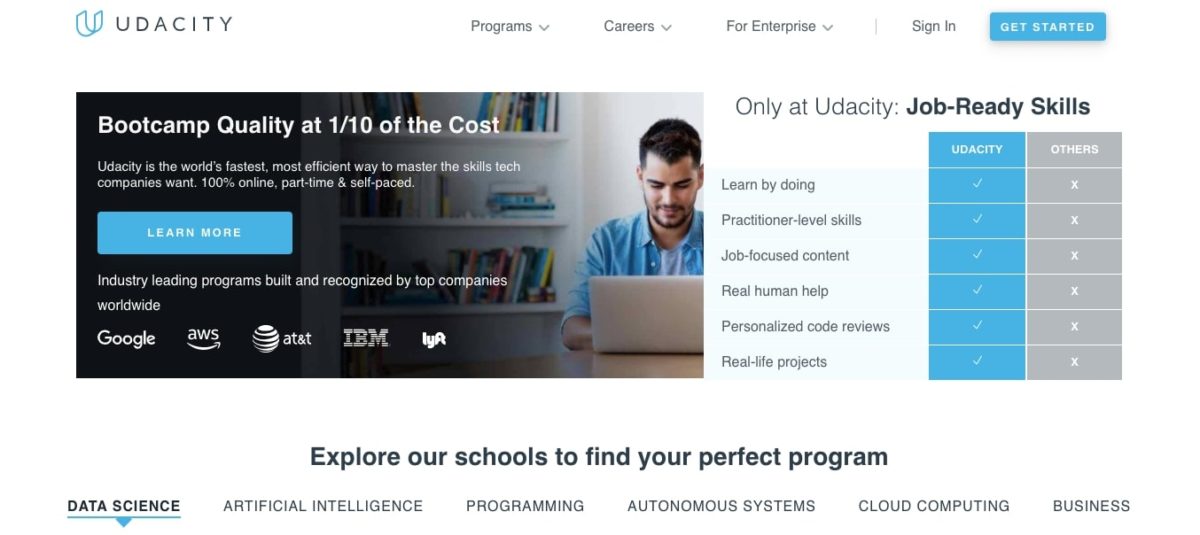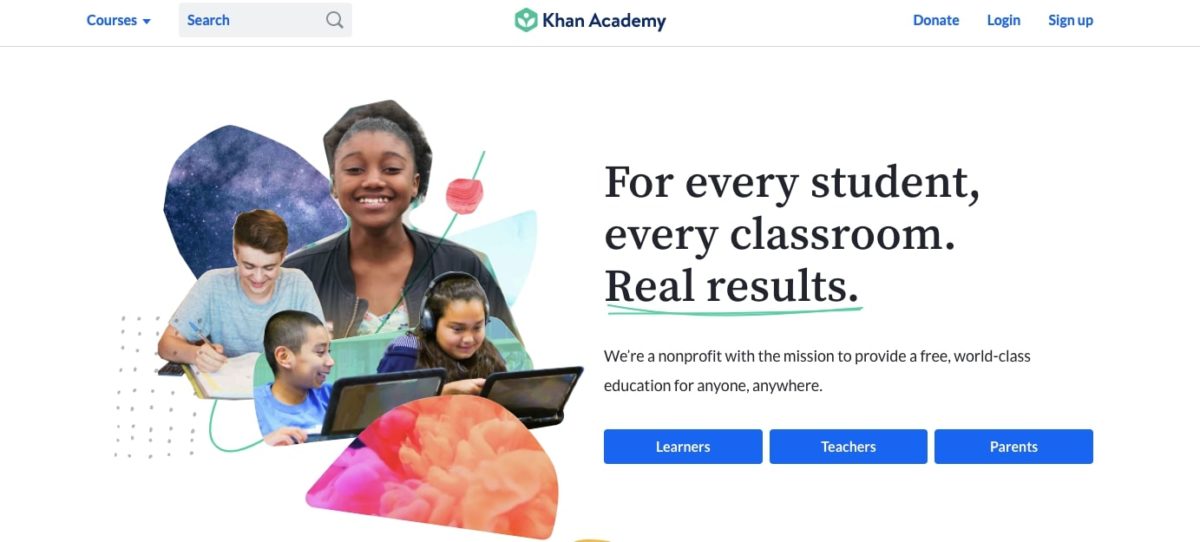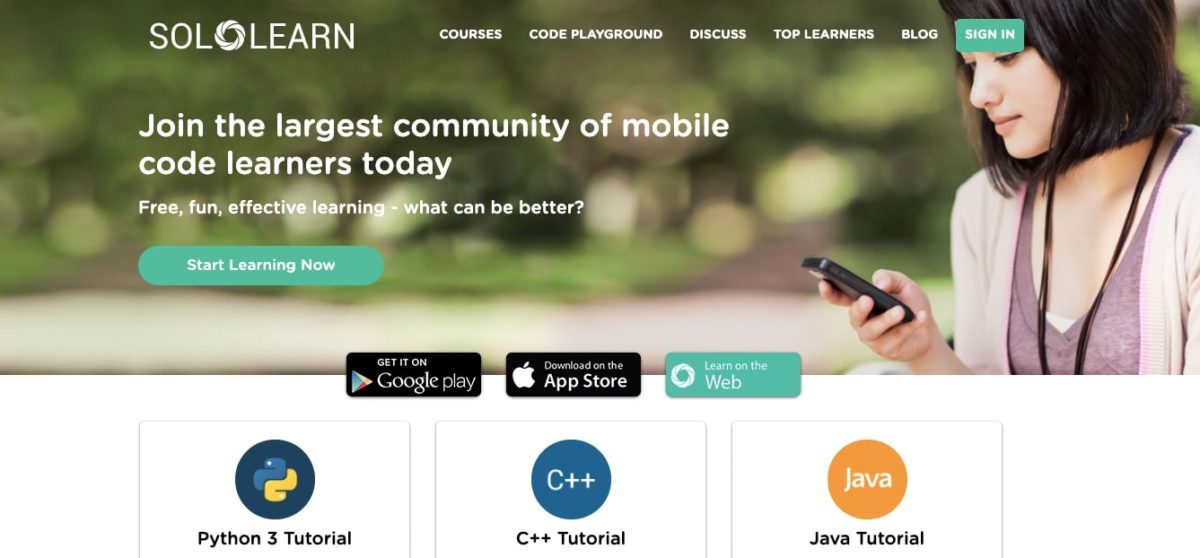Best Alternatives to Udemy
Udemy was founded in 2010 and is one of the top online learning platforms offering a wide range of valuable courses (and offering an impressive platform for those interested in creating courses).
But as useful as Udemy is, it’s not without its faults.
- Some students find Udemy courses rarely offer a certificate of proficiency.
- Some find they lack strategy and don’t offer as much information or training as they expected.
- Some simply feel they can’t trust the people and organizations that publish courses on Udemy to provide high-quality content.
- Some feel that the learning community is limited.
If any of that sounds familiar, you might be considering Udemy alternatives instead, and we don’t blame you!
These alternatives to Udemy offer a range of benefits you might like.
Lynda
Since Lynda has been around for almost two decades, it’s one of the Udemy alternatives with an extremely extensive course library. Lynda has technically rebranded as LinkedIn Learning.
However, many still know it by its original name because it’s long been one of the top Udemy alternatives for online course creators. It specifically focuses on professional development.
- Founded: 1995
- Who’s it ideally for: Job seekers or those who are applying for a promotion or raise. It is great for anyone who wants to boost their resume.
- Pricing: Lynda offers monthly plans that cost $29.99/month, or annual plans that cost $24.99/month. Both options allow for a one-month free trial.
- The Verdict: Lynda vs. Udemy: Lynda is a superior platform if you plan on taking courses continuously, because Udemy charges you for each course you take, while Lynda’s payment model is subscription-based. It is also the recommended platform if you are searching for a career change.
Treehouse
Treehouse doesn’t offer online courses in a wide range of categories, like Udemy or Lynda.
Instead, it caters specifically to the tech industry and is better for understanding advanced topics in detail.
- Founded: 2011
- Who’s it ideally for: Those seeking courses specifically targeting people interested in learning coding or similar tech subjects.
- Pricing: Treehouse offers a seven-day free trial. After that, you can choose a $25/month Basic Plan, $49/month Pro Plan, or $199/month Techdegree plan. The platform also offers team plans if you want to share its courses with your employees, but pricing for those varies depending on a range of factors (such as the size of your team).
- The Verdict: Treehouse vs. Udemy: Udemy’s courses may be valuable, but they can also be general. Treehouse might be a better option if you’re specifically interested in coding and similar topics.
Coursera
Coursera is another popular alternative to Udemy for several reasons.
The main reason is that it partners with universities, such as Yale and Stanford, to offer courses.
Coursera also provides some free courses, letting new users get a sense of the formats they can expect to find on this platform.
You can also earn certificates from Coursera that will look good on your resume.
- Founded: 2012
- Who’s it ideally for: Those interested in taking a few basic free online courses before deciding to pay for more extensive options. Or people who want to have a technical certification or degree from an accredited and prestigious school
- Pricing: Coursera prices vary from one course to another. However, if you plan on taking multiple courses, you can sign up for Coursera Plus, a subscription that currently costs $399/year and provides access to most of the platform’s 3,000 plus courses.
- The Verdict: Coursera vs. Udemy: Coursera might be an appealing Udemy alternative if you’re specifically interested in academic topics.
PluralSight
Another Udemy alternative worth considering if you want to develop your technology skills (or you’re training a team) is PluralSight.
This platform is also relatively versatile, with over 5,000 courses and also offering a range of options and plans for both individuals and teams.
- Founded: 2004
- Who’s it ideally for: Those interested in developing specific tech skills through video courses.
- Pricing: One of Pluralsight’s greatest benefits is the flexibility of its pricing plans. The platform offers a range of options based on your specific needs. Individual users focusing on developing certain skills can choose monthly ($29/month), annual ($299/year), or premium ($440/year) plans. Prices can also vary if a user is providing courses to a team and/or has different goals.
- The Verdict: PluralSight vs. Udemy: Like some of the other alternatives to Udemy on this list, PluralSight boasts stronger tech skills courses because that type of content is its specific focus.
Udacity
Udacity offers courses in specific tech skills and is a specialist online learning provider.
You can find courses on artificial intelligence, autonomous systems, machine learning and more.
The platform’s courses arise from partnerships with corporations in Silicon Valley, such as Google and Facebook.
- Founded: 2011
- Who’s it ideally for: Someone interested in advancing in their career, as Silicon Valley firms recognize its certifications.
- Pricing: Udacity’s offers some free courses. However, its monthly subscription costs $399/month.
- The Verdict: Udacity vs. Udemy: Udacity is a worthwhile Udemy alternative due to the length and depth of its courses, which tend to be substantially longer than Udemy’s. All of Udacity instructors are vetted and experts and Udemy’s are not.
Skillshare
Skillshare’s target users are people who want to learn graphic design, photography, business and similar creative/artistic skills. Another alternative to learning how to get a tech job at a FANG startup would be taking some technical interview preparation training, although slightly more technical than what you can get at Skillshare.
Skillshare has notable instructors, such as award-winning logo-designers and TED-talk presenters.
It offers both free classes and premium content.
- Founded: 2010
- Who’s it ideally for: Users interested in developing creative skills and/or taking a lot of different courses.
- Pricing: Many of Skillshare’s classes are free, but the best content is available through a Skillshare Premium subscription, which costs $8.25/month for an annual plan, or $15/month for users who want to pay on a month-by-month basis.
- The Verdict: Skillshare vs. Udemy: Like some of the other Udemy alternatives covered here, Skillshare’s main benefit for some users is its subscription model, which is ideal for those interested in many different courses. It has a lot fewer courses than Udemy.
Khan Academy
Khan Academy is a unique Udemy alternative because the organization behind it is a nonprofit. They charge nothing for their courses. It’s totally free. The platform is more casual, with searchable video lessons.
- Founded: 2008
- Who’s it ideally for: Anyone on a tight budget.
- Pricing: All Khan Academy courses are free.
- The Verdict: Khan Academy vs. Udemy: Khan Academy’s courses typically don’t offer the quality users find on Udemy, but they are free, which is a major benefit for some.
Codeacademy
As the name implies, Codeacademy specifically targets users who wish to learn various coding skills. It’s got a catalog of all the main coding languages, such as HTML, Python, and CSS.
It’s another platform where all the content has been generated in-house. They claim to have taught over 45 million students.
- Founded: 2011
- Who’s it ideally for: Those who want to develop a range of coding skills in a structured manner.
- Pricing: Codeacademy offers a Basic plan that’s completely free, although the more extensive Pro plan costs $19.99/month. You can also choose a plan for an entire team, but pricing will vary.
- The Verdict: Codeacademy vs. Udemy: Codeacademy is superior to Udemy if you’re interested in taking several courses that directly feed into one another, the same way they would in a coding program at a traditional educational institution.
Learning.ly
Renowned publication The Economist launched Learning.ly to offer educational content to its audience. Although the topics of courses can vary, in general, they tend to focus on subjects such as professional development and entrepreneurship.
- Founded: 2015
- Who’s it ideally for: Budding entrepreneurs who want to know the courses they’re taking are top quality.
- Pricing: Each course has its own price.
- The Verdict: Learning.ly vs. Udemy: Learning.ly doesn’t offer as much content as Udemy, but the team behind it does screen all professors and courses before publication, ensuring they are of the highest quality.
Bloc.io
As with so many alternatives to Udemy, Bloc.io specifically offers courses in software development and design.
The curriculum is written by expert curriculum developers.
When the course is completed, the student will have earned a recognized degree certificate.
- Founded: 2012
- Who’s it ideally for: Anyone who wants to learn to code but doesn’t have much relevant experience yet. It is also great for people who live busy lives.
- Pricing: Bloc.io offers two main programs: a Web Developer Track program and a Designer Track program. For the Web Developer Track program, users have the option of paying $7,500 upfront for eight months of instruction, or $8,500 in the form of monthly $1,063 payments. The Designer Track program costs $8,500 upfront for eight months, or a total of $9,600 in the form of $1,200 monthly payments. Three to five-year loan options are also available for students who qualify.
- The Verdict: Bloc.io vs. Udemy: Bloc.io is definitely the better option for anyone who needs substantial guidance because programs involve working with mentors who can offer advice and answer questions directly.
Edx.org
Edx.org doesn’t focus on one specific subject area.
Instead, it offers courses in a range of subjects, all developed by such universities as Harvard and MIT.
- Founded: 2012
- Who’s it ideally for: Users interested in courses from actual colleges.
- Pricing: Prices vary from one course to another.
- The Verdict: Edx.org vs. Udemy: Udemy courses often cost less than Edx.org courses, but Edx.org’s team assures the quality of the platform’s courses by only offering content produced by established educational institutions.
Alison.com
Affordability is Alison.com’s main benefit.
It offers courses in a range of subjects, at no cost. it is one of the world’s largest free learning platforms and has courses ranging over a variety of categories.
- Founded: 2007
- Who’s it ideally for: Alison is very strong in “bottom of the pyramid” as its fully free. Their focus is on perhaps a lower level – professional and below – whereas many of the others target higher worth graduates.
- Pricing: Alison courses are free, although users do need to pay (pricing varies from one course to another) if they want to receive a certificate after completing a course. Users can also pay a monthly to remove ads.
- The Verdict: Alison.com vs. Udemy: The quality of Udemy’s courses at par with those of Alison’s, but because the platform’s courses are free, it could be an appealing option to someone who wants to explore a topic in a general manner before making a financial investment.
Sololearn
Sololearn.com offers free courses.
Unlike Udemy, all the platform’s courses teach various coding skills. You can find courses on the coding language Python and Java.
- Founded: 2014
- Who’s it ideally for: Those interested in coding who lack experience and want to try developing basic skills before deciding if this type of work is right for them.
- Pricing: Sololearn.com courses are free. However, users have the option of upgrading to a Pro account, which removes ads and helps them track their progress more easily.
- The Verdict: Sololearn.com vs. Udemy: Because Sololearn.com courses are free, users shouldn’t expect them to be highly-detailed or extensive. However, if someone isn’t sure they want to learn to code professionally, but does want to see if coding is something that might interest them, Sololearn.com is a helpful option.
Continue Learning, Continue Growing
Hopefully, this overview of Udemy alternatives helped you better determine which is ideal for your goals. However, it’s worth keeping in mind that taking online courses will always be a somewhat passive way of learning.
If a subject truly interests you, consider learning about it via a platform or method that involves one-on-one video calls with an instructor, like GrowthMentor for example.
That will naturally offer a more in-depth learning experience.
















